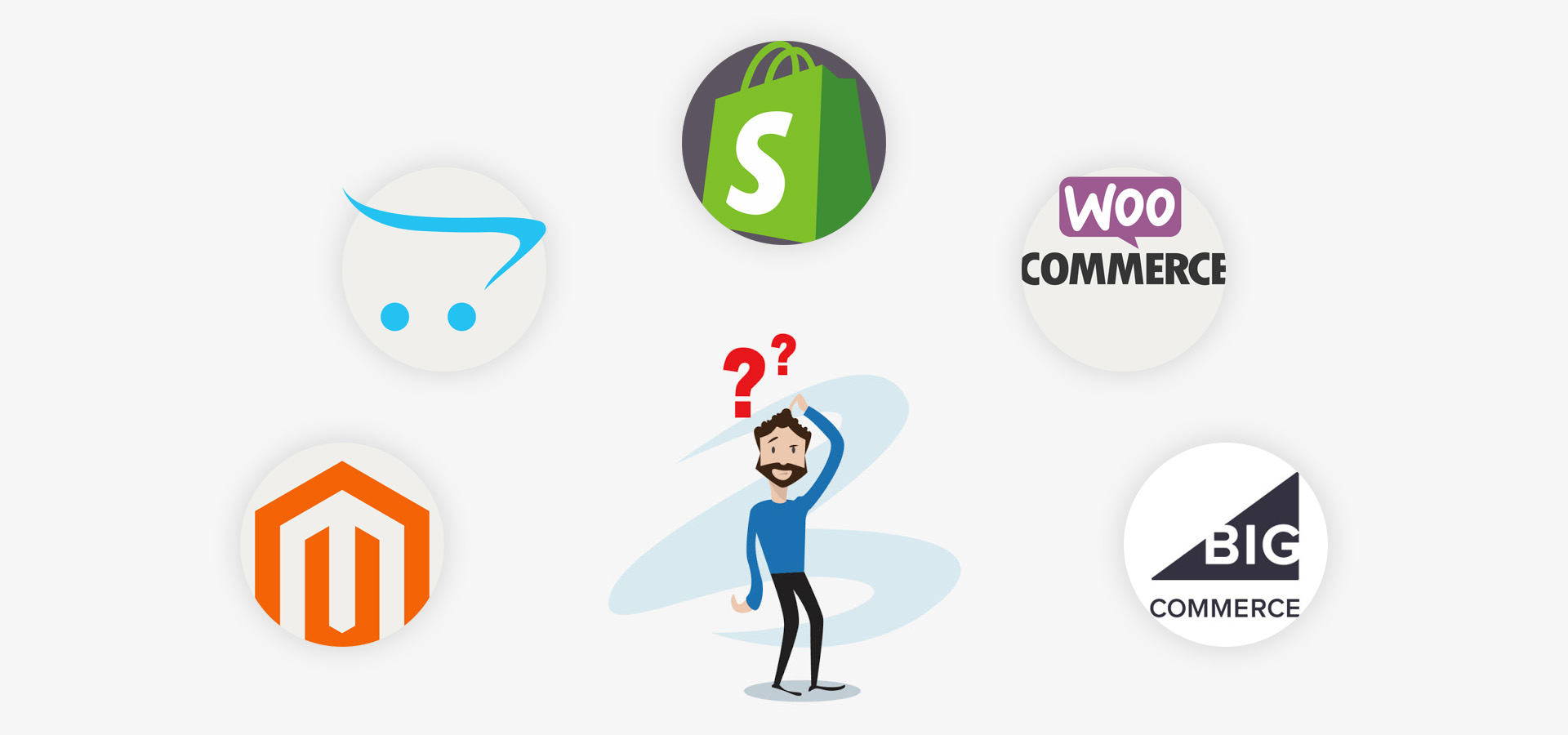What to Consider When Choosing an E-commerce Platform for Your Business
Conceiving an e-commerce business idea is easy. But implementing it isn’t. A lot goes into setting up a successful e-commerce store. And choosing the right platform is probably the most crucial step of all.
What makes it even more challenging is the massive amount of competition vying for a place in the explosive e-commerce market. In 2017, global e-commerce sales amounted to $2.3 trillion. If that isn’t enough, this number is projected to grow to $4.88 trillion by 2021! Hence, having a well-thought-out e-commerce business plan can help you tap into this.
To begin with, you need an e-commerce site and you need to get it off the ground. Let’s take a quick look at the things you need to consider to get the first step out of the way i.e., choosing an e-commerce platform that is right for your business.
Know Your Hosting Options
You can either self-host your e-commerce site or avail a paid hosting service.
Each of these has its own pros and cons. For example, self-hosting gives you complete authority of your e-commerce site. This means you get to control its configuration and set-up, making this a highly flexible option for hosting your store. But this also means that you not only have to set it up from scratch but also manage the entire store all by yourself.
On the other hand, a hosted e-commerce plan doesn’t require much housekeeping and you get the benefit of better support, classy design, improved IT security, good customer service, free maintenance etc. But the price you have to pay for this isn’t just money but also a limitation to your customization options, reduced space etc. depending on the service provider.
Nonetheless, most retailers tend to opt for paid hosting service owing to the variety of features available. Common platforms include Shopify, Magento, WooCommerce etc. Before you decide to choose a platform, it is important to find out all the features available and select the one most suited to your business.
Take a Good Look at the Services
The last thing you would want is to select an e-commerce platform only to be unhappy with the features. Therefore, you need to be extremely careful about the services provided. Ask the right questions:
- Can you integrate your existing product database with the e-commerce solution? Can it accommodate the variety of your stock?
- Does the service include daily site backup?
- Will you get a complimentary, round-the-clock support?
- Will your site’s loading time be affected? Will any additional feature cause a downtime?
- Are you going to be provided with a shared server? If so, what are the security measures taken?
- Does the platform provide the ability to add multiple payment methods?
- Does it support mobile commerce?
You can be more specific about the questions you ask if you define your business’s requirements beforehand. It will make your job easier. Do not forget to research a lot before you decide on a platform because switching hosting platforms down the road isn’t easy.
Assess Compatibility With Your Marketing Plan
You already have certain marketing strategies planned for your business. But does your choice of e-commerce platform support them? Make sure to verify the compatibility of the platform with your marketing initiatives. You need to drill down on the features and find out whether they support the complete execution of your marketing needs including promotional offers, blog integration, social media postings etc.
Calculate Costs
Every paid hosting package comprises different services at various prices. You will also find differences in the services offered for the same price across multiple platforms. So, you would need to choose wisely to ensure that you get the features you need at a cost that doesn’t exceed your budget.
Another thing you need to keep in mind is the additional cost associated with an e-commerce platform. These may include transactional fees, costs for server storage, apps and other add-ons that you might need along the way. The best way to deal with this is to pad the cost to cover these charges.
Find Out the Ease of Administration
An e-commerce platform is of hardly any use if you cannot administrate it according to your needs. Before selecting a platform, learn more about the functionalities provided in the administrative panel and how much accessibility and control you have over each.
While choosing a platform, keep in mind that your business needs to evolve with the changing customer requirements. These include technology advancements, new marketing trends, SEO predictions etc. Ensure that the foundation of your e-commerce platform is strong enough to accommodate these.
Bottomline is, the host is going to house your e-commerce business and these points will help you choose a reliable one.
